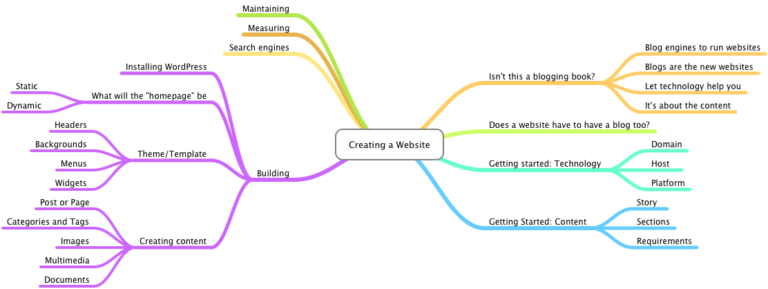Solving My Problems First
If you want to really understand what AI can do, you have to do it for yourself first.
No, this post isn’t about me working through mental/emotional baggage to be a better person—though the title could work for that too—this is about my approach to learning any new tech I come across. Ever since my first Mac, I’ve read the manuals. Probably one of the best pieces of advice my dad gave me. I like to learn how all the parts work, but manuals alone don’t cut it. Yeah, I can look up how to use a function in Excel or how a feature works or how to get something done, that’s all surficial stuff, the real fun comes from digging in and doing stuff.

I’ve been banging away at learning AI for over two years now. I’ve made lots of really terrible images. Prompts that came up with answers that weren’t grounded in reality. Vibe coded things that worked one minute and then went horribly, horribly wrong the next. Everything I’ve done is based on a singular idea: I solve the problems I have first. If I need show notes for a podcast, let’s see what Copilot can do with the transcript. If I need some XML data cleaned up, maybe I can use VS Code to fix it. Everything grounded in a problem I have right now that I’d like to see if AI can solve for me. Very simple. Very basic. Not pushing the boundaries of what can be done.
But that’s only the beginning. And that’s where things start to get interesting.
I hate content audits
There are few things I hate doing more in content marketing than SEO and content audits. They are tedious. They are complicated. And to do them really well, you have to spend a lot of time reading the content so you can understand what’s working and what isn’t. The problem is, content audits are crucial to making sure your content hits the mark. For the sake of time, most audits catalogue all the URLs for a given site, but only analyze a sampling of them. Maybe you pick the top and bottom 10 pieces to really dive into and figure the messy middle will be about the same. Even then that’s a lot of reading to do. A lot to remember and keep track of for your final assessment. Not to mention taking notes, tracking keywords, recording CTAs, and everything else you need to write the report.

And then there’s writing the report itself, pulling everything together into a cohesive document with actions, outcomes, and assessments. Did you forget something? Is there a blind spot you’re not seeing? Is there a diamond in the rough that you didn’t read? If you had read through the whole site, could you have recommended better pillar content or content to merge?
All stuff that is crucial, but also a royal pain—and easy to get wrong. It’s so easy to miss something. It’s all too easy to let your own biases color your assessment.
So why not automate it? Could a custom GPT and some web crawling tools give me a way to get a solid start on something I can review? Something that might be a little more objective? Something that could generate a really great report that only needs a human read and polish to be client ready?
Yep.
I’ve been working on this for a few weeks now but after several false starts, some really ugly code for site crawling, and a couple passes through the prompt, I have something that is pretty functional. I’m testing it out with friends and colleagues now to see if it’s a viable thing I can commercialize (if you’d like to give it a go in exchange for feedback, DM me).
And that’s just phase one.
At the same time, I’m building more tools like content calendar builders, brand tone and voice analysis, and a rather nifty Value Proposition Canvas app I vibe coded to offer clients or as part of my “value add” working as a full-time employee for someone. The goal here is simple: keep working on these “basic” tools as stepping stones to building bigger things down the road. Start chipping away at the edges to get to the good stuff.
This is how innovation gets done
Have I created anything that people couldn’t do themselves? Not by a long shot. Have I made things that do things better than people do? Still no. What I have made are tools that do those things faster. Aside from the website crawling tool, which I know there are apps for, all the AI tools do tasks in under an hour that typically take people days or weeks. Would this take someone’s job? I hope not, because when you can have a 90% there content audit or brand tone guide that fast you now have the mental space to do other things.

Maybe you look at that audit and brand voice guide and ask Gemini Canvas to create a mockup of a new homepage based on these inputs and your own ideas. You get these mockups in a few minutes and then can get immediate feedback. Then you iterate. How many functional homepage designs do you think you could do in a day? One? Two? What if you could do 5, 10, 20?
And this is how not just AI innovation will happen; it’s how all innovation is going to start happening. Asking “I wonder if AI can do this? Is there a tool already to do that?” leads to more AI tools and eventually things we haven’t even dreamed of yet. Being able to rapidly test out an idea, even if it’s an only sorta functioning prototype, is amazing. Being able to do this without knowing how to code at all (while scary for many) is democratizing. When my 10 year old can create a functioning game in less than two hours, and from doing that she’s inspired to make her next game; we are entering a whole new world of amazing possibilities.
And it all starts with solving your own problems, the problems that bug you the most first, and then letting your imagination free to do more.
I’m available for full-time, fractional, and freelance content development, marketing, and AI implementation work. Get in touch and we can take it from there.





